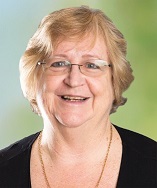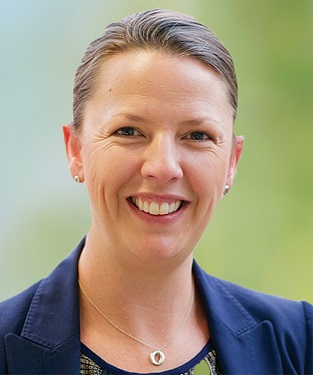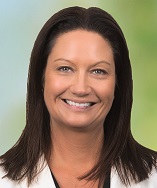- publish
A verification email has been sent.
Thank you for registering.
An email containing a verification link has been sent to .
Please check your inbox.
An account with your email already exists.
More women take control of their financial future through advice
- Fri 04 September 2020
Four female advisers from Morgans explain what women look for in their investment journey.
Female participation in the Australian sharemarket is rising rapidly as more women invest in ASX-listed securities to build wealth and take control of their financial future. About 45% of new investors in on-exchange products in the past year were female, the ASX Australian Investor Study 2020 shows. Five to 10 years ago, the figure was 31%.
Women slightly outnumber men in “Intending” investors (51% versus 49%). Intending investors intend to invest via ASX within 12 months. Their average age is 34.
The ASX study implies 900,000 adult Australians will invest for the time within 12 months, using an on-exchange product. An estimated 459,000 of them will be women. New female investors will on average be younger than previous generations, hold a range of investment products, and focus on stable, reliable returns rather than higher-risk strategies.
These findings are extrapolated from a national survey of about 5,000 adults by research firm Investment Trends, for the latest ASX Australian Investor Study. Much work is needed to encourage and support more women to invest for the first time. An estimated 6.9 million adults have never invested in an on-exchange product and have no plans to start. Women comprise 63% of this group, which has an average age of 45.
ASX Investor Update asked four female advisers from Morgans, a leading full-service stockbroking and wealth-management firm, for their insights on female participation in the sharemarket. The following is an edited extract of their responses.

Brooke Gardener, Morgans Brisbane
Brooke Gardener - Investment Adviser
Morgans, Brisbane
As a younger adviser, I have many younger female clients who are investing for the first time. Younger women today are more interested in getting started in the sharemarket at an earlier stage of life and standing on their own two “financial feet”.
Younger women see their friends and family investing in the sharemarket, through their personal interactions and via social media. It is much more the norm for them to invest.
That said, women across all generations have greater interest in investing these days.
That’s due to cultural change and also because women know they need to invest in the sharemarket to build wealth when returns from cash and fixed-interest are so low.
I have young and older female clients, and plenty of male clients as well. In my experience, younger women often prefer to work with younger female advisers, with whom they have more in common. Also, younger investors often have greater interest in emerging technologies, such as Apps, so seek advisers who follow this part of the sharemarket closely.
Differences between female and male investors are overstated. I don’t agree with generalisations that women are risk averse or use fewer investment products. The most noticeable difference is women have greater interest in ethical investing. When starting your investing journey, know that it is for the long term, not a “one-time deal”. Commit to investing a portion of your wage to a regular investment plan, and invest those funds for as long as possible to benefit from compound interest.
If you have a small amount to invest, for example $10,000, consider a low-cost Exchange Traded Fund (ETF) or Listed Investment Company (LIC) on ASX. Spend time to learn about the sharemarket through ASX online courses or ASIC’s MoneySmart site. As your money grows, seek investment advice as soon as possible. Good advice will pay for itself many times over. Younger investors in particular should favour full service so they can focus on the best investment at that stage of their life: building their career.

Lesley Faehse, Morgans Financial Darwin
Lesley Faehse - Senior financial planner, Partner
Morgans Financial, Darwin
I have advised many women on investing over the years. Often, they started with a small amount and decades later were wealthy. They understood the importance of investing early in their life and getting good financial advice. They had the discipline to invest for the long term.
My clients tend to be older. For example, I recently met with a widow who was nervous about investing for the first time.
Other women get interested in investing as they near retirement and their superannuation grows. Divorce is another trigger to invest.
I see differences between female and male investors. When I ask women about their investment goals, their priority is often building wealth to help their family. With some men, there is more focus on creating rapid wealth from a “hot stock tip” to buy their next car!
There are many excellent female and male advisers. I believe women are naturally a little more caring and nurturing, and prefer financial advisers with those qualities. They want advisers who listen to them, understand their financial and life challenges, and will be part of their life for years.
I don’t agree that investors with small amounts cannot get full-service advice. Yes, it is hard to provide extensive advice to such investors, given rising compliance costs. But experienced advisers know a small investor today can become a large investor one day, with good advice.
Women who are thinking about investing for the first time should seek advice. My philosophy has always been to meet with those who want to get started in investing, or take their call, even if they are not large clients at the start.

Tania Smyth, Morgans South Australia
Tania Smyth - Financial Adviser
Morgans, South Australia
Several reasons explain the growth in female investors. There are many younger professional women with successful careers and money to invest. There are also more female advisers who are promoting the benefits of investing and helping women, young and old, to start.
Demographic change is another factor. As people live longer, they realise they need to focus on investing in their superannuation earlier in life. Some of my new clients are women in their forties who are thinking more about their money as their kids get close to finishing school.
Social change is another driver. I advise a lot of couples who have equal say in their investment strategy. In fact, in some Self-Managed Superannuation Funds (SMFs) it’s the woman trustee who is driving the big investment decisions and overseeing the administration.
I am always wary of gender generalisations about advice. Female investors do not always gravitate to female advisers. Lots of male financial advisers in South Australia do a terrific job and have many female clients. I have an equal split of male and female clients. With investing, differences between women and men are small, in my experience. If anything, women tend to be a little more considered, measured and patient about their investment strategy. Men tend to be less conservative when investing, though that is not true of all.
My general advice to women who are thinking about investing for first time is: get started as early as possible. Even if you only have a small amount, put it to work in the market through a low-cost diversified fund, such as an ETF available on ASX. The best way to build your sharemarket knowledge is to invest. Also, take advantage of the sharemarket education resources from ASX or the ASIC MoneySmart site, and read some popular investment books on getting started in the market.
As your money grows and you have more to invest, you will know when financial advice is needed. Good advisers are like a coach; they tailor a plan for you, help build your skills, enhance your investment performance, and encourage you to stay the course in volatile markets.

Kylie Macdonald, Morgans Sydney
Kylie Macdonald - Financial Adviser
Morgans, Sydney
The “Me Too” movement and focus on women taking back their power explains the growth in female investors in the sharemarket. The role of women has undergone a sea change.
This role used to be limited and controlled by men, but that is no longer the case. Women are feeling more empowered and continue to strive for financial equality and independence.
I am being approached or sought out by more women (for financial advice) due to divorce.
They have been in the background of their husband’s decisions and contact me when ready to run their own race. Patience pays off, as they reward (their adviser) with their trust and loyalty.
I find women want more meaningful engagement with their financial adviser. Central to their investment journey is knowledge and education. They do their own research and collaborate with their trusted circles.
Generally, women are more risk conscious, willing to acknowledge and research what they do not know, and tend to stick to a “slow and steady wins the race” approach. Women also seem to have a better long-term perspective and attention to detail with investing. However, some can be a little more emotional in their decision making.
My advice to women who are thinking about investing? Engage a professional … after all, no one cuts their own hair! Ensure the adviser is the right fit. Ask questions. Don’t try to become a professional investor in a short time frame, at least initially.
Related links
About the author
Financial Advisers, Morgans
Brooke Gardener, Investment adviser at Morgans, Brisbane
Lesley Faehse, Senior financial planner and Partner at Morgans Financial, Darwin
Tania Smyth, Financial adviser at Morgans, South Australia
Kylie Macdonald, Financial adviser at Morgans, Sydney
ASX acknowledges the Traditional Owners of Country throughout Australia. We pay our respects to Elders past and present.
Artwork by: Lee Anne Hall, My Country, My People
